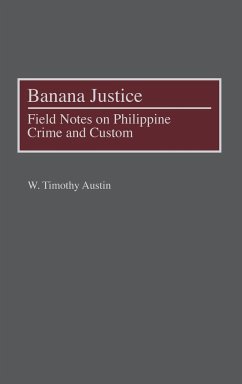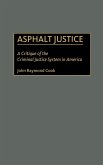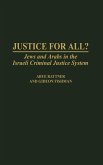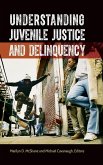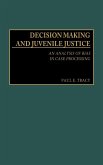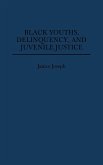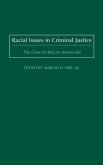Based upon nearly twenty years of research and theoretical analysis of selected rural and urban communities in the Philippines, this book describes and critiques a variety of justice-related issues, including terrorism, vigilante activity, corruption, and juvenile delinquency. These themes provide distinctive insight into Filipino crime and custom, beginning with assessment of how local village-level citizenry tend to reject government intrusion into traditional time-honored styles of informal social control. Other sections include historically persistent peacemaking scenarios and how Muslim and Christian citizens in the southern Philippines have tried to resolve disputes and crimes with only relative success. Although most of the narrative results from diaries and field notes were completed while the author lived in northwest Mindanao, the southernmost island of the Philippines, comparisons are occasionally made to other regions of the Philippines and regions abroad. By drawing upon participant observation and multiple, in-depth interviews with locals, the study outlines how villages have coped with life in a terrorist-prone region. The related concern of vigilante movements is also considered, as well as the growing tendency toward bribery and extortion, two activities that appear to have become almost normal features on the cultural landscape. A consistent theme throughout the book is the avoidance, when at all possible, of official agencies of control and, at times, the shunning of the law altogether. Such a mood toward anarchy may, the author contends, at times be functional and appropriate given particular cultural traditions.
Hinweis: Dieser Artikel kann nur an eine deutsche Lieferadresse ausgeliefert werden.
Hinweis: Dieser Artikel kann nur an eine deutsche Lieferadresse ausgeliefert werden.

